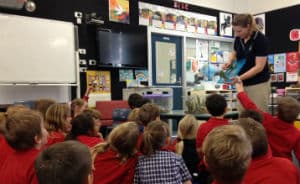
It can be quite daunting on your first day as a science teacher. Sure, you’ve done the required face to face days as a student teacher and you’ve passed all the exams… but now it’s the real deal! Entering a new school can be a little off-putting for even experienced teachers let alone how it feels walking into a school knowing you’re about to take control of your first science class. All sorts of thoughts can cross your mind and they’re very common and very understandable;
- What will be your opening few sentences be with your new classes? Will you be stern or welcoming?
- Which science experiment will you open with? Do you want to go large or do you want to hold out your best experiment for a few weeks as a carrot for good behaviour?
- What will the class dynamics be like anyway?
- How will you manage the inevitable workload new science teachers face in their first year?
- Will your lesson plans stand up to the real deal?
- How will you make a great impression with your fellow teachers?
+ plus many, many more!
First things first, relax! You’re in good company. Every one of your fellow teachers has been through their first teaching year and know exactly what you’re walking into. It’s normal to be a little nervous and it’s actually that very energy that will drive you forward in those first weeks. You’ve gone through teacher training for good reason and would not have graduated without the approval of your master teacher and having met the standards required to get your teaching number. Still, it can still feel a little overwhelming for some new teachers and it can help just to have a few extra tips up your sleeve, even if you’re super confident!
- Make friends with the school’s front office staff. Seriously, this is critical. The office staff are the ones who will help you out with all manner of background tasks or at the very least point you in the right direction. Not only that, they’re the ones who’ll be helping you process all the permission slips for your school excursion and incursions. They’re the ones who can help organise more classroom supplies be approved. In some schools, they help sort out pay issues and your personal leave too. It’s worth chatting with your fellow teachers to find out what can be run through the office and what is better organised through your head teacher or school executive. Just be aware that the school front office is incredibly busy, especially during school drop off and pick hours as well as morning tea and lunch.
- Take the opportunity to learn more about your fellow teachers throughout the school, not just in the science faculty. Why? Well, what if you need a specialist piece of material welded up by one of the manual arts teachers? What if you need to borrow a musical instrument from the music department? Maybe you need you coordinate a joint school excursion with the geography and history department? Make sure to offer your help where it’s needed plus take the time to find out more about each person (and not just the formal teaching stuff). Besides which, teaching is a profession that’s all about people… this is not the time to be stand-offish and shy!
- Speaking of working with your colleagues, you cannot function very well unless you get to know your lab technicians! They’re the ones who will make sure that all of your chemical reagents, dissections, teaching models, apparatus and more are ready for you when you need it. They often have been in your school for years and have a wealth of knowledge on teaching ideas and awesome experiments kids love. Spend the time with them and you won’t regret it. As an ambassador for the Association for Science Education Technicians NSW, I cannot speak more highly of the work they do.
- Ask! You’ll find that as a beginning science teacher that the other teachers in your faculty will be more than happy to give you advice and tips on successful strategies on teaching science. They might have some teaching resources to share or even a quick analogy or scenario that works well for your Year 8 class. They can also give you a heads up about some of the student behaviours and pitfalls in classroom management to avoid too. Just be aware that whilst they’ll be approachable be sure to be mindful of their time as they can be quite busy, especially around report writing time.
5. Be true to yourself. Whilst you’ll be focusing heavily on making the best impression you can with your students you don’t want to create a false idea of who you are. Just be straight up with how your class will operate and how the students can contribute positively. I’d recommend considering an eye-catching science experiment or stimulus material at some point during your first lesson, but only after you’re happy you’ve gained the classes attention and respect. Of course, you want to be dynamic and friendly within the classroom, but don’t forget that you’re also their teacher and you need consistent, fair and even-handed discipline to be effective in the classroom.
Pouring liquid nitrogen into the hot water
6. If you don’t know a science concept during a class, don’t pretend you do. Instead, freely admit that you don’t know a particular concept and work with your students to find the answer. In this way, you’re modelling a collaborative environment found in science labs anyway and you’ll gain the student’s respect and trust in that you won’t make things up just to seem like you know everything. No one likes a know-it-all, especially one who doesn’t and thinks that they do!
7. The best way to avoid the issue above is to simply be prepared for your science lessons. No-one said that your first teaching year was going to be easy. Do your research on the topic so that you can field the kind of questions that your best students might ask. An easy way to cover yourself is think beyond what the syllabus requires you to teach and pretend you’re preparing to teach a lesson to an older student. This way you’ll have the background information in your head and this will give you the kind of confidence you need to teach! I recommend considering Trello lesson planning and classroom organisation and Pinterest for storing away teaching ideas.
8. Ask questions during class. Don’t just lecture with fact & figures. If you think back to your student teaching year you would have seen your master teacher demonstrate effective questioning in every lesson they ran. Good student questioning will allow you to work out where the class is sitting from not only a knowledge point of view but also an engagement point of view too. Plus, asking questions will allow there to be more of a conversation in your class around a science topic and you’ll find that the tangents the conversation takes will lead students to a higher level of learning in the long run.
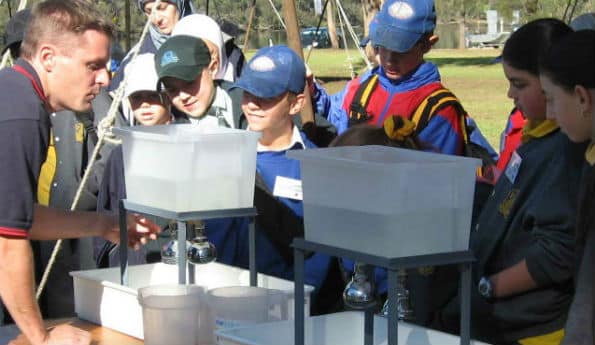
Looking at water wastage at Bankstown Council Environment Day
9. Involve, involve, involve! If you do all the fun stuff all the time even the best students will start to disengage. Get a volunteer up wherever it’s safe and appropriate to do so. Try to choose different kids every time, especially aim for students who are making the effort in your class.
Holly from Fizzics running Bernoulli experiments at SciFest Africa
10. Mix it up. Aim to vary your science lessons so that students can work in a variety of learning environments. Bring on group work, station-based rotations, teacher demonstrations, dictation, guided hands-on activities, science apps and more. As you get more confident you can try outdoor activities, guest expert speakers, science fairs, role plays, critical evaluations, competitions, excursions & incursions, video conferences and more. Start simple and look to build on your successes to create a learning environment that students look forward to joining.
Holly from Fizzics at the Australian National Maritime Museum for Women in Science
Finally, don’t beat yourself up if your first week doesn’t go to plan. It’s almost inevitable that one of your classes wont go to plan in your first year. The important thing is that you pick yourself up, evaluate what occurred and come up with a plan to make it better next time, We have a saying at Fizzics that “you’re only as good as the workshop you’re running now”, a simple reminder that it’s important to keep striving to deliver your best lesson every time and that’s only possible if you’re reflective on your mistakes and improve for next time. After all, Rome wasn’t built in a day!
Happy teaching,
NEW Primary science teaching book!
“Be Amazing! How to teach science, the way primary kids love”
Want more ideas for teaching science?
Subscribe to the FizzicsEd Podcast!

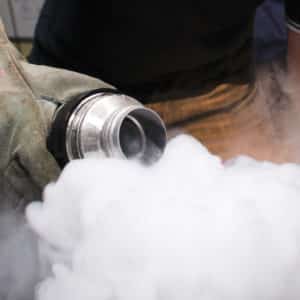

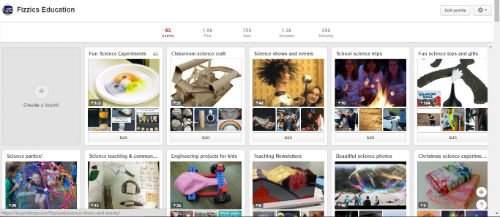

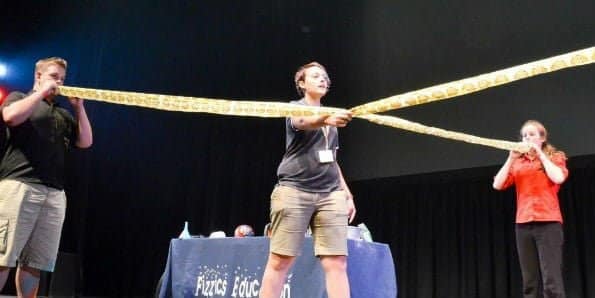

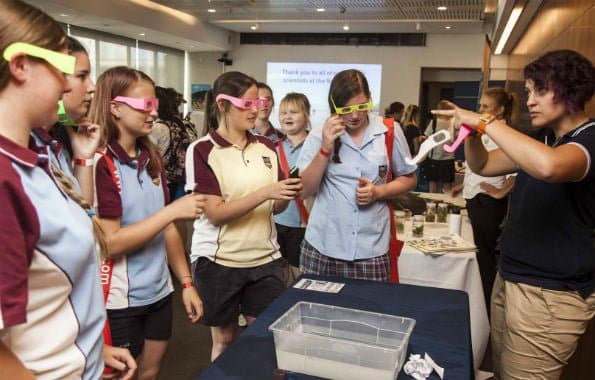

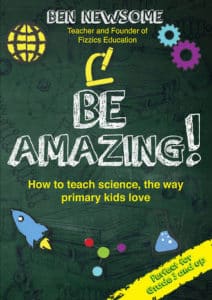

























Comments